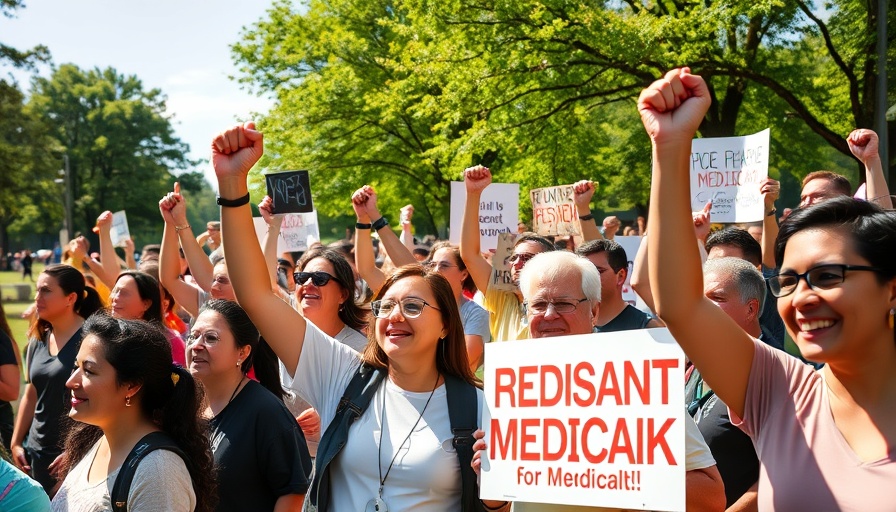
Understanding the Trump Tax Bill's Impact on Medicaid
President Trump’s recent tax legislation, often referred to as the 'big beautiful bill', is poised to create critical changes in the landscape of Medicaid health insurance. Slated to cut nearly $1 trillion from Medicaid funds, this bill could potentially strip medical coverage from over 11 million low-income Americans over the next decade. As the nation grapples with the implications of this massive legislation, understanding its effects on Medicaid is vital for families and individuals who depend on this essential program.
The Medicaid Cuts Explained
This legislation raises serious concerns about access to health care coverage for vulnerable populations. Not only does it double the frequency of eligibility checks from once a year to twice, but it also mandates proof of employment or acceptable exemptions for Medicaid recipients. Given the strict definition of 'able-bodied' citizens within the bill, many may find themselves without coverage if they cannot meet these new work requirements or are unable to navigate the complex bureaucratic system. The consequences are stark: individuals and families who should qualify might unfortunately fall through the cracks due to administrative errors.
Critical Perspectives from Experts
Health policy experts are sounding the alarm regarding the potential fallout from these cuts. With nearly 83 million Americans relying on Medicaid, the implications for rural hospitals and care providers could be dire. As Rick Pollack, the president of the American Hospital Association points out, these funding cuts could lead to 'irreparable harm' to our health care infrastructure, reducing access not only for Medicaid patients but also for the wider community.
Implications for Healthcare Accessibility
About one in five Americans are beneficiaries of Medicaid, indicating just how broad the impact of these cuts may be. For individuals in rural areas, where access to alternative health care options may be limited, the loss of Medicaid coverage could mean a full withdrawal from essential health services. Hospitals can only provide care to those who walk through their doors, and a significant drop in insured patients directly threatens their operational viability.
Looking Ahead: The Future of Medicaid
As this legislation is debated, individuals currently relying on Medicaid can benefit from understanding their options. In Muskegon and elsewhere, many may be unaware of alternative programs or enhanced Medicare Advantage plans that can alleviate some of the pressures that would come from losing Medicaid coverage. It is vital for consumers to reach out to local Medicare Medicaid specialists who can guide them in exploring their best health insurance options.
Take Action Now!
If you or someone you know is concerned about the changes to Medicaid under this new tax bill, it is crucial to reach out to a local Medicare Medicaid specialist. They can help you navigate the potential shifts in coverage and discover the best plans tailored for your needs. This proactive step can make a significant difference in maintaining access to health care services.
 Add Row
Add Row  Add
Add 




Write A Comment